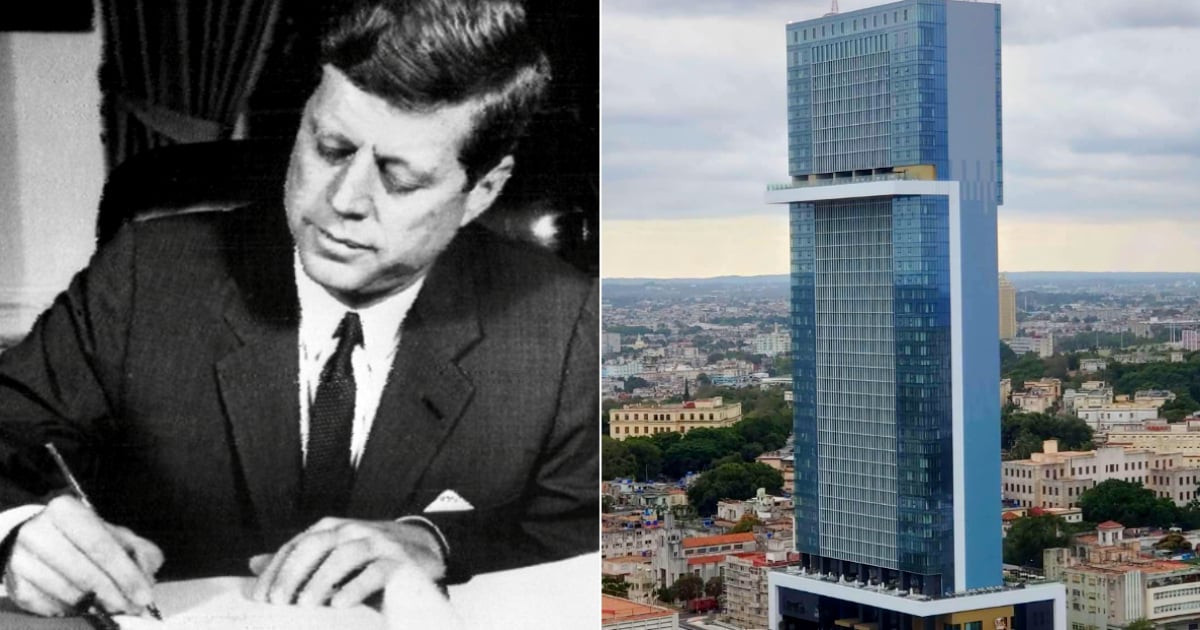
Related videos:
On February 3rd, 63 years have passed since the then President of the United States, John F. Kennedy, signed the executive order that established the trade embargo against the Cuban regime, in response to the forced expropriations of American properties on the island.
Over the decades, this policy has become one of the main arguments of Castroism to justify its economic failure, despite the fact that the restrictions imposed by Washington have not been the determining factor in the structural crisis facing the country.
Origins of the embargo
The embargo on Cuba was implemented on February 3, 1962, in the context of the Cold War, after the dictator Fidel Castro nationalized American businesses on the island without compensation. This was compounded by the growing alliance between the Cuban government and the Soviet Union and its support for guerrilla movements in Latin America and Africa.
Since its establishment, the embargo has been tightened and relaxed at different times. The Torricelli Act (1992) and the Helms-Burton Act (1996) reinforced the restrictions, making trade between third countries and Cuba more difficult and establishing that only the U.S. Congress could lift it.
However, several U.S. administrations have authorized certain exemptions, such as the sale of food and medicine, in addition to allowing the sending of remittances and the operation of airlines and cruise lines during the thaw promoted by Barack Obama.
Propaganda Use of the Embargo by the Cuban Regime
Castrism has exploited the embargo as a propaganda tool to cover up its own shortcomings and justify the country's ongoing economic crisis.
From education to state media, the official narrative maintains that the "blockade" (as the Cuban government refers to it) is the main obstacle to the island's development, thereby obscuring the inefficiency of the socialist model imposed by the Communist Party.
Nevertheless, Cuba maintains trade relations with more than 150 countries and has received financial support for years from the former Soviet Union (which analysts estimate to be around one hundred billion dollars, equivalent to seven Marshall Plans) and, more recently, from Venezuela. Despite this, the scarcity of food, medicine, and basic products has been a constant issue, even during times of greater economic openness.
Future scenarios
The future of the embargo remains uncertain. While there is a sector within the United States that advocates for its lifting, arguing that it is an outdated policy that has failed to achieve its goal of democratizing Cuba, the lack of progress on human rights and the ongoing repression against dissent have hindered any substantial change.
Under the administration of Joe Biden, the policy towards Cuba generally remained unchanged concerning the sanctions imposed by Donald Trump, who revoked many of the relaxations adopted by Obama.
The tightening of sanctions and the return to the list of state sponsors of terrorism driven during Trump's second term gain new dimensions due to the presence of Cuban Americans in the administration.
In the short to medium term, it is unlikely that the embargo will be lifted without significant political and economic reforms within Cuba.
In this regard, the regime itself is its worst enemy, as its refusal to implement structural changes hinders any serious negotiations with Washington. As long as the Cuban government continues to repress the opposition and upholds a one-party system, the embargo will remain a self-imposed obstacle that the leadership will use to perpetuate its victimhood narrative.
Sixty-three years after its implementation, the U.S. embargo against Cuba remains a topic of international debate. However, history has shown that the main cause of the island's economic and social crisis is not this policy from Washington, but rather the political and economic system imposed by Castroism itself.
As long as the regime does not change its governance model, any external measure, whether sanctions or openings, will have a limited impact on the lives of Cubans.
Filed under: